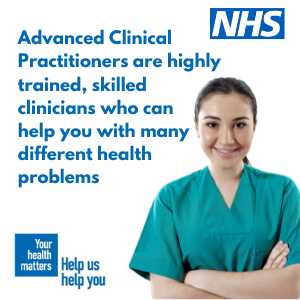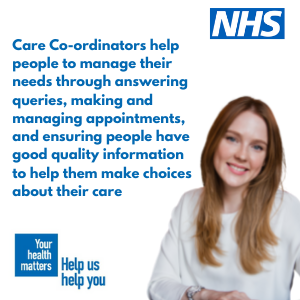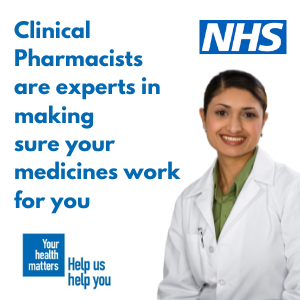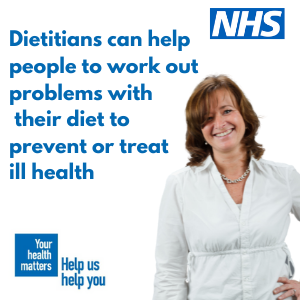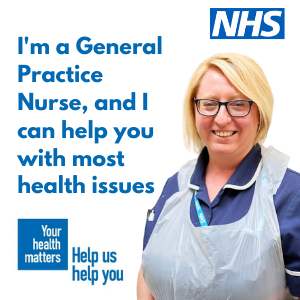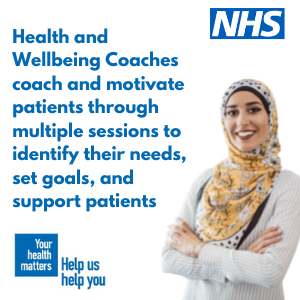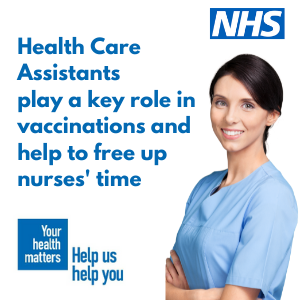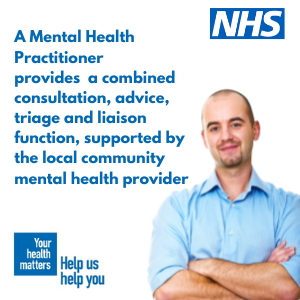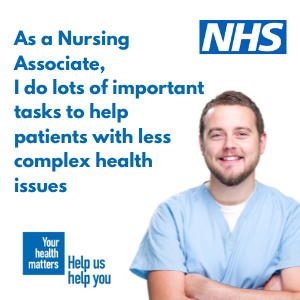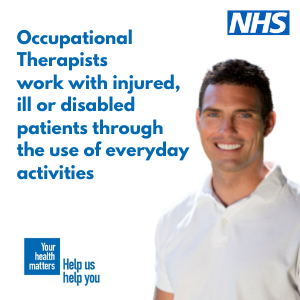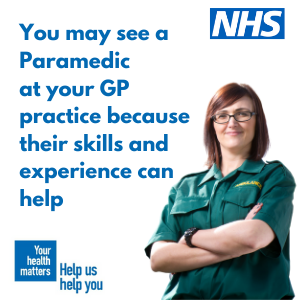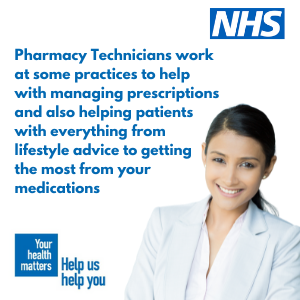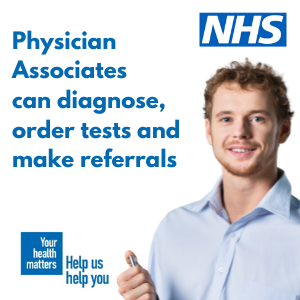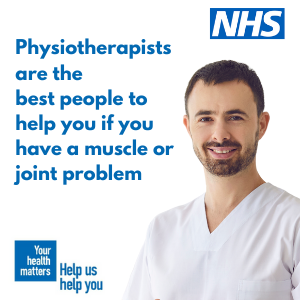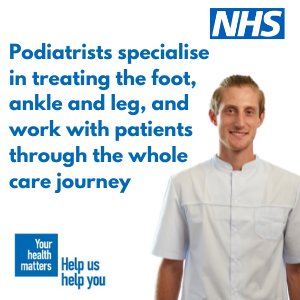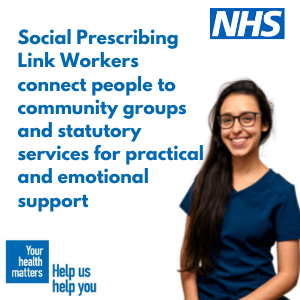Your local GP practice has a wide array of health professionals who can help you in different ways, without seeing a doctor first, so you can get the right help and advice more quickly.
From physiotherapists and dieticians to pharmacists and nurses, these highly trained experts can help you to help yourself.
Next time you have a health concern, consider whether one of these staff could help you or ask for the advice of the reception staff, who are trained to help get you the best care as quickly as possible.
Advanced Clinical Practitioner
I decided to undertake extra training so I can help patients with more complex problems.
Now I can prescribe medicines, order tests and interpret the results, and work on treatment plans with patients.
I can help a lot more patients, freeing up the doctors to see patients with the most urgent or complicated health issues.
Care co-ordinator
As a Care Co-ordinator, I really focus on providing a more joined-up and coordinated care journey for patients.
I am the single point of contact for patients to navigate the health and care system, helping to break down traditional barriers between health and care organisations.
I do a lot of work with people who have long-term health conditions in particular.
Clinical pharmacist
I’m a clinical pharmacist and I help patients to understand and get the most out of their medicines.
I often also help with lifestyle changes to tackle long-term conditions, order blood tests where necessary and often advise patients who have just come out of hospital and need help with their new medications.
Being part of the team here means our patients have an expert they can talk to pretty quickly when they need to.
Dietician
I’m trained help with diet but also to spot health conditions which may be unrelated to diet, and I work closely with colleagues to treat complex conditions such as diabetes, chronic fatigue and kidney failure.
I advise patients on how they can improve or change their diet.
A big part of my training is recognising how diet is part of the whole picture for a patient, and can improve a person’s health and wellbeing.
General Practice Nurse
I can help dozens of patients every day. As a registered nurse I do all sorts, from baby immunisations to helping people with long-term conditions like diabetes and asthma.
I can also do breast exams, check that strange rash you’re worried about, or even talk to you about contraception.
It’s great to be able to help so many people!
Mental Health Practitioner
I’m a Mental Health Practitioner, and I work with patients to make the best possible decision to manage their care and help them access treatment.
I’m a bridge between primary care and specialist mental health providers, providing care to patients with a range of needs.
Patients who need specialist support can be seen with no formal referral, and can then go on to access a range of mental health services.
Nursing Associate
A lot of people don’t know much about what I do, but my main role is working with patients who need help or advice but don’t need to see a doctor or a nurse.
It’s great because people don’t need to wait so long for an appointment, and it’s helping me for when I train to become a registered nurse.
Occupational Therapist
I help people develop, recover and improve, as well as maintain the skills needed for daily living and working.
I assess, plan, implement and evaluate treatment plans to increase patients’ productivity and self-care.
I work really closely with patients through a shared-decision making approach to plan realistic goals.
Paramedic
My paramedic training means I can deal with lots of different types of illness and injury, but I also did extra postgraduate training so I can help even more patients.
I do quite a few home visits and help to assess patients on the phone, so I can help people get the right care as quickly as possible.
Pharmacy Technician
As a Pharmacy Technician, I’m a registered professional with the General Pharmaceutical Council (GPhC). I’m doing two years of on-the-job training as part of a GPhC approved training programme.
Patients can often get the right advice from me more quickly than if they waited for a doctor’s appointment.
Physician Associate
I have a list of my own patients and can diagnose many conditions, order up tests and interpret the results, then make referrals if needed.
I originally did a degree, then studied for another two years to become a Physician Associate, so I have a lot of skills that I can use to help people.
This means I can take some of the load of the GPs, which also means less waiting time for patients!
Physiotherapist
I work with lots of patients who have muscle or joint problems. That includes people recovering from serious injuries or illness, and those with new injuries.
I can book scans and tests, and even organise joint injections, which used to need a GP. We’re also trained to spot ‘red flags’, which means we can recognise when a joint or muscle problem may be a sign of something more serious.
This is great because patients can come to me without needing to wait for a GP appointment.
Podiatrist
As a podiatrist I work on prevention, diagnosis and treatment of conditions that affect the foot, ankle and leg.
Podiatrists work in a variety of places and can work with a team of people including doctors, nurses and physiotherapists.
My main aim is to improve the mobility, independence and quality of life for their patients.
Social Prescribing Link Worker
As a Link Worker, I help patients to improve their health, wellbeing and welfare by connecting them to community services which might be run by the council or a local charity.
Social prescribers can take time to talk about what matters to patients and support them to find suitable activities that are a better alternative to medication.
They connect people to community groups and services for practical and emotional support.
Gallery
- Advanced Clinical Practitioner
- Care Co-ordinator
- Clinical Pharmacist
- Dietitian
- General Practice Nurse
- Health And Wellbeing Coach
- Health Care Assistant
- Mental Health Practitioner
- Nursing Associate
- Occupational Therapist
- Paramedic
- Pharmacy Technician
- Physician Associate
- Physiotherapist
- Podiatrist
- Social Prescribing Link Worker

